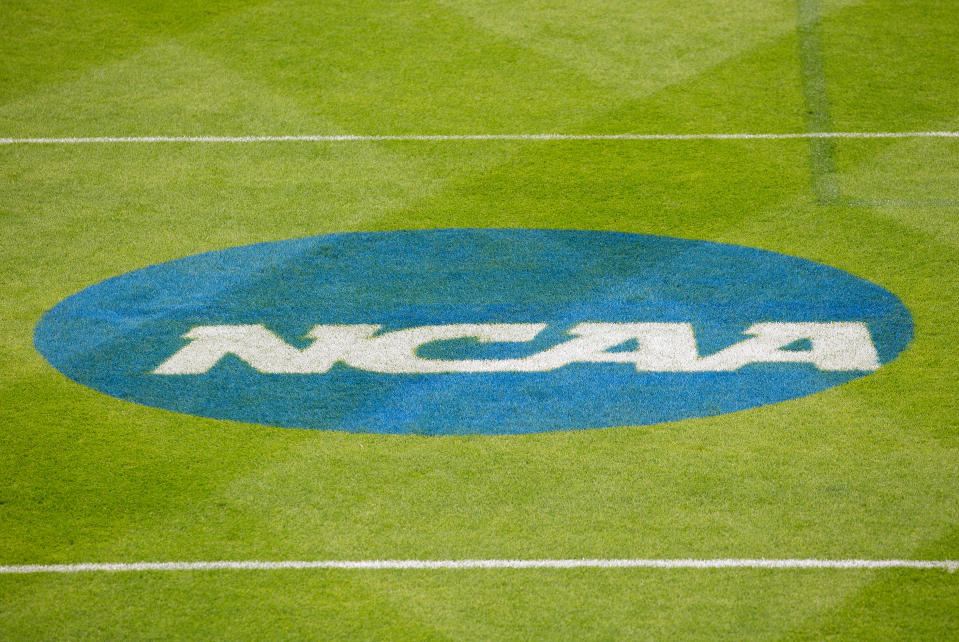NCAA calls California college athlete bill 'unconstitutional,' says it would create recruiting advantage

The NCAA believes that a California bill that would allow athletes to receive outside compensation based on their image and likeness is “unconstitutional” and would blur the line between professional and amateur athletics.
The NCAA released a harsh statement against the bill Wednesday morning. It comes in the days after the bill passed through the California State Assembly unanimously on Monday and through the State Senate on Wednesday afternoon after the letter. It’s now heading to the desk of Gov. Gavin Newsom to be potentially signed into law.
The NCAA’s statement comes in the form of a letter to Newsom and claims that it would “upend the balance” of college sports in addition to being — in the NCAA’s view — unconstitutional. It’s not immediately clear just what the NCAA thinks in the California bill would be in violation of the United States Constitution.
California Senate Bill 206 would upend that balance. If the bill becomes law and California’s 58 NCAA schools are compelled to allow an unrestricted name, image and likeness scheme, it would erase the critical distinction between college and professional athletics and, because it gives those schools an unfair recruiting advantage, would result in them eventually being unable to compete in NCAA competitions. These outcomes are untenable and would negatively impact more than 24,000 California student-athletes across three divisions.
Right now, nearly half a million student-athletes in all 50 states compete under the same rules. This bill would remove that essential element of fairness and equal treatment that forms the bedrock of college sports.
Bill would go into effect in 2023
The bill, which was passed again by the senate Wednesday afternoon after amendments were made to it in the state assembly, would allow college athletes in the state to receive endorsement deals and hire agents to make business deals without losing their college eligibility. As you know, NCAA rules prevent athletes from monetarily capitalizing on their image and likeness under the guise of amateurism.
The NCAA makes sure to point out in its letter to Newsom that its against a pay-to-play collegiate system and that athletes are not employees of their schools. The California bill is not pay-for-play. The potential law would not allow players to be paid directly by their schools. Instead, a football player could receive money from a car dealership in exchange for filming an ad for the dealer.
The NCAA continues to focus on the best interests of all student-athletes nationwide. NCAA member schools already are working on changing rules for all student-athletes to appropriately use their name, image and likeness in accordance with our values — but not pay them to play. The NCAA has consistently stood by its belief that student-athletes are students first, and they should not be employees of the university.
It isn’t possible to resolve the challenges of today’s college sports environment in this way — by one state taking unilateral action. With more than 1,100 schools and nearly 500,000 student-athletes across the nation, the rules and policies of college sports must be established through the Association’s collaborative governance system. A national model of collegiate sport requires mutually agreed upon rules.
The NCAA formed the working group to examine image rights in May.
Bill has some high-profile support
The NCAA’s opposition to the bill is nothing new. The governing body came out against it when it was first proposed and has even threatened to bar California schools from NCAA championships if the bill becomes law.
But the NCAA also realizes that it’s going against a rising tide of public opinion in support of athletes’ rights as well. LeBron James has come out in support of the California bill. So has Sen. Bernie Sanders (I-Vermont) and presidential candidate Andrew Yang has paying college athletes who generate revenue for their schools as one of his campaign positions.
If Newsom signs the bill when it hits his desk, he’ll immediately become the biggest supporter of athlete rights. And he could end up forcing the NCAA to make its biggest change of the modern era.
– – – – – – –
Nick Bromberg is a writer for Yahoo Sports.
More from Yahoo Sports:

